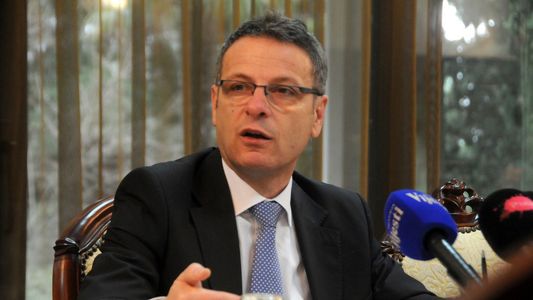Garčević Discusses Protests Sparked by Trump’s Immigration Policy on “Global”
Professor Vesko Garčević was invited to TV Bosnia and Herzegovina’s (TV BH) talk show “Global” to offer insights about the recent protests that unfolded in Los Angeles and across the United States following the implementation of Trump’s disputed immigration policy. He elaborated on the scale of these demonstrations, particularly the No Kings protests and the political agenda driving the Trump administration’s crackdown on undocumented immigrants.

With regards to the No Kings protests, Garčević highlighted that more than five million people across the rural and urban areas of the country showed up to oppose Trump’s pro-authoritarian leadership style, especially to express disapproval over his controversial deportation tactics involving unwarranted raids by the U.S. Immigration and Customs Enforcement (ICE).
Garčević also noted that the military parade honoring the U.S. Army’s 250th anniversary was purposefully organized on June 14 which happens to be President Trump’s birthday. According to him, this move mimics the king’s parades or similar pageantries that are typically arranged to appease autocratic leaders.
The professor also commented on protests in Los Angeles, emphasizing the National Guard’s deployment. He mentioned that Trump is targeting specific cities and areas that practice sanctuary jurisdiction. In other words, constituencies exhibiting “leftist” tendencies. By politicizing and securitizing immigration crisis, Garvevic asserts that the Trump administration is treating law-abiding immigrants as dangerous criminal aliens.
To watch Professor Garčević’s full interview, click here.
Vesko Garčević is a professor of the practice of international studies at the Frederick S. Pardee School of Global Studies and the director of the Center for the Study of Europe. An expert on multilateral issues, Garčević is the co-author of Montenegro and Serbia: A Velvet Divorce? (Bloomsbury Academic) which explores the divergent past between Serbia and Montenegro between 1988 and 2023. To read more about his work and accomplishments, visit his faculty profile.